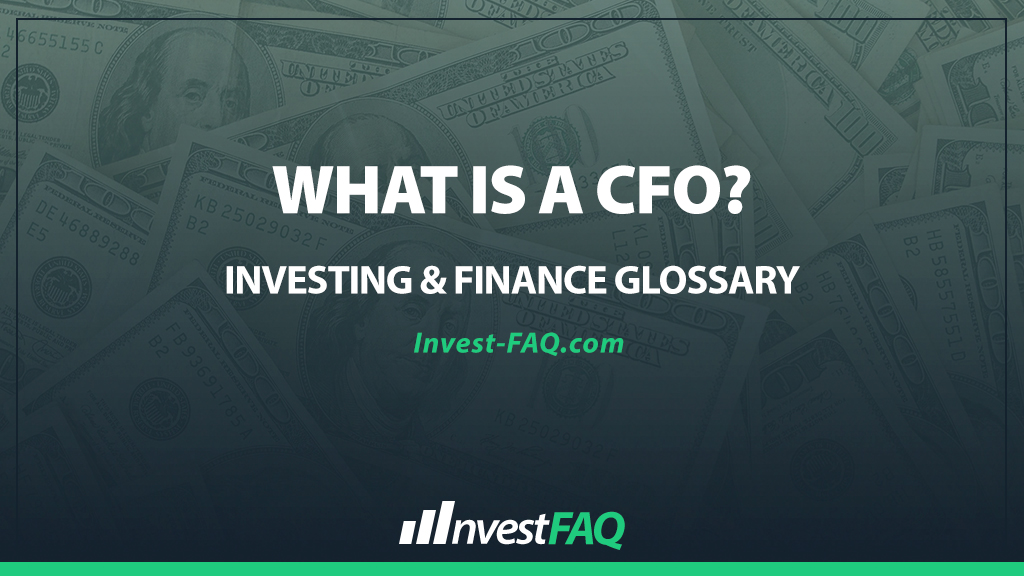
CFO
Contents
A Chief Financial Officer (CFO) is a senior executive responsible for managing the financial actions of a company. The CFO’s duties include tracking cash flow, financial planning, analyzing the company’s financial strengths and weaknesses, and proposing corrective actions.
In the business realm, the CFO plays a pivotal role in shaping the company’s financial strategy and direction. Beyond managing the company’s finances, CFOs are involved in strategic planning, operational analysis, and decision-making that contribute to the company’s growth and sustainability.
They often work closely with other senior executives to make decisions regarding investments, capital structure, and how the company can drive revenue while reducing costs.
Example of a CFO
Let’s consider “EcoTech Inc.,” a company specializing in green technology, facing financial challenges due to unexpected market conditions. The CFO, Alex Johnson, conducts a comprehensive review of the company’s financials and decides to restructure the company’s debt to improve cash flow.
Restructuring Process:
Alex negotiates new terms with lenders to extend the maturity dates of the existing debts and reduce the interest rates.
He also identifies underperforming assets for divestiture to raise capital and reduce expenses.
Financial Impact:
The restructuring leads to an improved debt-to-equity ratio and enhanced liquidity, securing the company’s operational needs and investment in growth opportunities.
In this scenario, Alex Johnson, the CFO of EcoTech Inc., strategically addresses the company’s financial challenges through debt restructuring and asset divestiture.
His actions not only alleviate immediate financial pressure but also set the stage for sustainable growth by improving the company’s financial health. This example underscores the CFO’s role in financial crisis management, strategic planning, and ensuring the company’s long-term viability.
Significance for Investing & Finance
The CFO’s role is significant in accounting and overall business management for several reasons:
Strategic Financial Leadership: The CFO provides strategic leadership in financial management, ensuring that the company’s financial strategies align with its overall goals.
Risk Management: By analyzing and managing financial risks, the CFO helps protect the company’s assets and shareholder value.
Financial Reporting and Compliance: The CFO ensures accurate financial reporting and compliance with regulatory requirements, maintaining investor and market confidence.
Operational Efficiency: Through oversight of financial operations and use of financial data in strategic planning, the CFO contributes to enhancing operational efficiency and profitability.
In summary, the CFO is integral to a company’s financial health and strategic direction.
With a broad range of responsibilities that encompass financial management, strategic planning, and operational analysis, the CFO plays a crucial role in guiding the company towards achieving its financial and business objectives, highlighting the indispensable nature of this executive role in today’s business environment.
FAQ
How does the role of a CFO differ from that of a controller?
While a controller focuses on overseeing the daily accounting operations and ensuring the accuracy of financial reporting, a CFO takes a broader strategic role, guiding financial planning, risk management, and decision-making to support the company’s growth and financial health.
Can a CFO influence the operational aspects of a company?
Yes, CFOs significantly influence operational aspects by using financial insights to drive strategic decisions, optimize resource allocation, and improve efficiency, thus playing a crucial role in shaping the company’s operational strategies and performance.
What qualifications are typically required to become a CFO?
To become a CFO, one usually needs extensive experience in finance or accounting, often coupled with a professional designation like CPA or MBA, demonstrating a deep understanding of financial management, strategic planning, and business leadership.
How has the role of the CFO evolved with the advent of digital technology?
The role of the CFO has evolved to encompass data-driven decision-making, with a focus on leveraging digital technologies, financial analytics, and automation to enhance financial strategies, operational efficiencies, and competitive advantage in the market.
